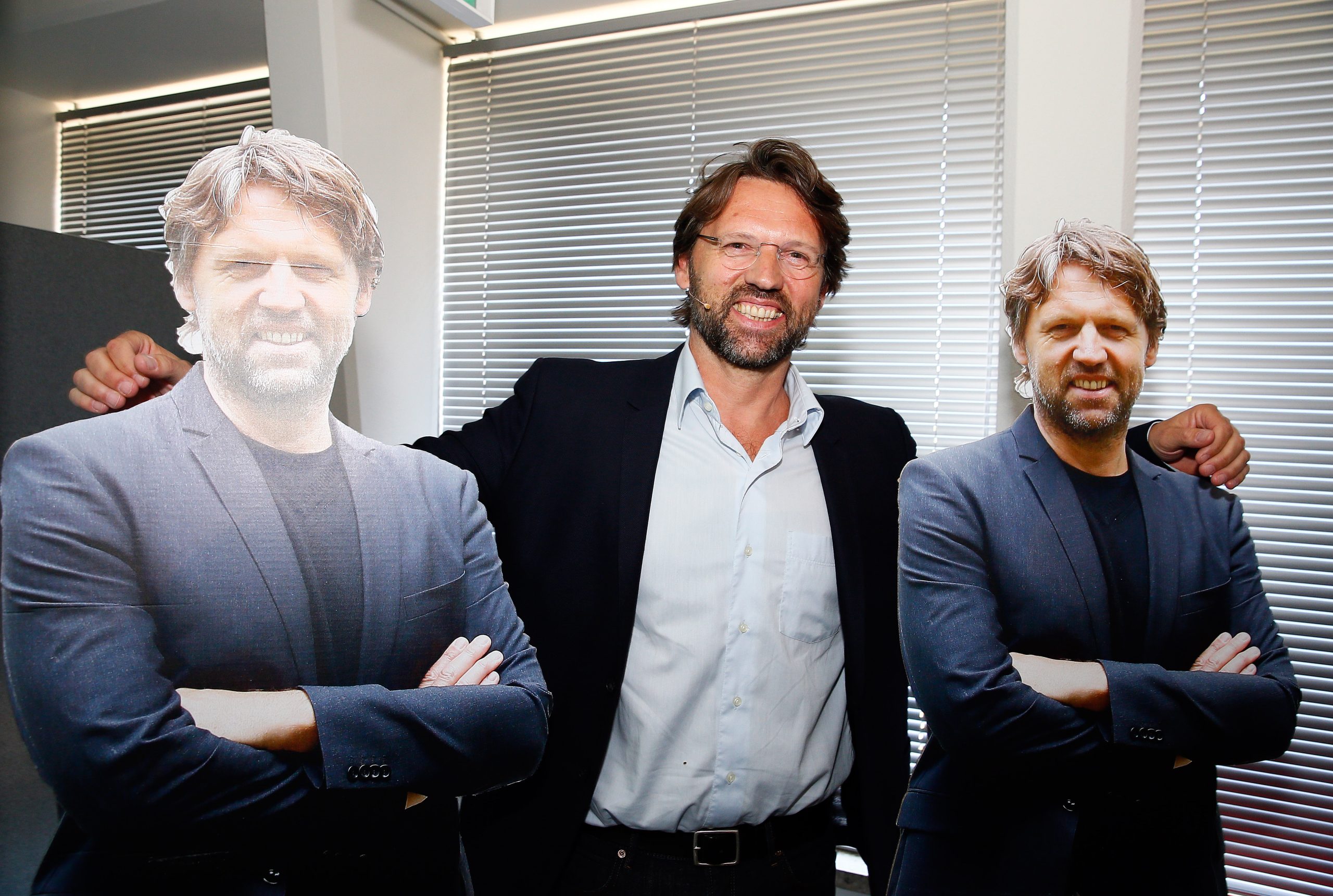Leo Kouwenhoven is not jointly responsible for incorrect data processing at his department. Yet, there are lessons to be learnt from the integrity case against the quantum professor.
Quantum physicist Leo Kouwenhoven between two clones at the opening of the Microsoft quantum lab in 2017. (Photo: Roy Borghouts).
That is the conclusion of the TU Delft’s Executive Board after reading the second report of the Internal Committee for Scientific Integrity (CWI), and interviews with the two defendants in the case: quantum professor Leo Kouwenhoven and his former postdoc Hao Zhang.
The CWI-report had been delivered on February this year, the interviews followed in June. The Executive Board’s conclusion was published on 18 December on the website (in Dutch) of the umbrella organisation Universiteiten van Nederland (Universities of the Netherlands). In addition to the CWI’s assessment and opinions, it contains the executive board’s deliberations and final conclusions, with the board also reaching out to its own.
Data handling
The CWI-report was prompted by a report of violation of scientific integrity. In their motivation of the withdrawal of a Nature publication on nanowires, the researchers themselves mention inappropriate deletion and cropping of measurement data. They therefore decide to retract their 2017 article on 19 April 2022.
That was more than a year after the earlier withdrawal of a high-profile Majorana article that the CWI investigated earlier.
Referring to the nanowire article, the integrity commission concluded that there had been incorrect processing of data by Zhang (‘Accused 2’). Kouwenhoven was also partly responsible for this, the integrity commission concluded and referred to the working conditions that enabled incorrect data processing.
Other conclusion
After discussions with those involved, the Executive Board follows the CWI’s assessment of Zhang. ‘First and foremost, for the Executive Board, the responsibility of [defendant 2] in this matter is paramount,’ the Board ruled on 7 November 2023.
But about Kouwenhoven, the Executive Board wrote: ‘A manager must – taking all control mechanisms into account – be able to rely to a certain extent on the work of experienced researchers in his team, as [defendant 2] was in this situation.’
Kouwenhoven also had no reason to distrust his postdoc, the Executive Board writes, and he was ‘not involved in the measurements’ for the article at hand.’ He is not held responsible in this case for the actions of [defendant 2].’ In other words, the Board clears Kouwenhoven of blame.
Recommendations
The Executive Board does follow two of the CWI’s general recommendations on working with data:
-
- Interpretation of measurement data by a single researcher should be avoided.
- Principal investigators should ensure that selection of measurement data is documented and justified to the readers of a publication.
Working pressure
The CWI’s advice mentions ‘the apparent pressure that existed among the research group (…) to produce results during the period in question’, according to the UvN report.
The Board knew about these rumours, it would appear, and approached staff for a statement on the working atmosphere. On the one hand, these statements revealed appreciation for Kouwenhoven’s inspirational leadership and the opportunity to develop in the research field. On the other hand, reports came in about ‘the high level of competition present during the period in question.’
‘For some employees, this led to stress that eventually led to irregularities’, reads the Executive Board’s (cvb) final verdict. ‘The cvb takes that to heart.’
In the report, the Board writes that it values a research climate of ‘relative calm’ while respecting integrity standards. Adopting the above CWI recommendations fits in with this aim. In addition, Kouwenhoven’s appointment as university professor is likely to give him a calmer research environment.
Do you have a question or comment about this article?
j.w.wassink@tudelft.nl


Comments are closed.